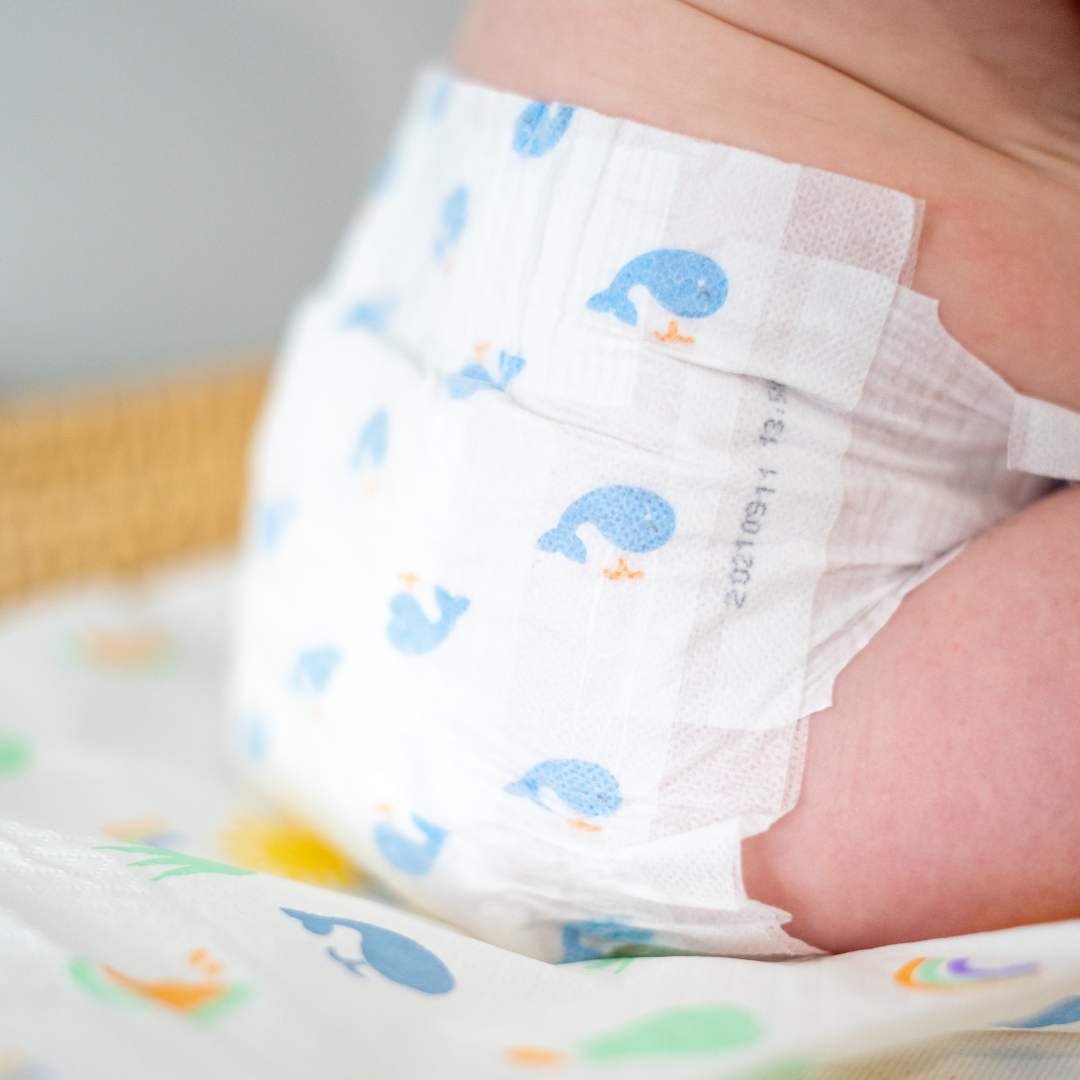Baby poo changes depending on how a baby is fed. Most young babies poo a few times a day until their gut adjusts to digesting milk. It’s common for bowel habits to vary between individual babies and what’s normal for one baby may not be for another. Some babies poo many times each day, others only a couple of times each week.

First poos
The first poo a newborn baby passes is called meconium. This is a sticky, black ‘tar’ like substance. Over the next few days of digesting milk, meconium changes in colour and consistency, from black to dark green. Meconium does not have any smell and though it looks pretty gross, it’s a positive sign that the baby’s gut is working as it should.
Poos for breastfed babies
Babies who are breastfed generally poo a lot each day in the first few weeks of life. In fact, it’s normal for breastfed babies to poo every time they wee and with every nappy change. The consistency of breastfed poos is soft, mushy and often mucousy. Their poos can also contain little ‘seeds’ – fat curds from digesting breast milk. The colour can range from mustard yellow to green. Breastfed poos smell sweet but not unpleasant.
After a couple of months, healthy, well fed and thriving breastfed babies tend to poo less frequently. Sometimes they don’t poo for up to 7-10 days, which can cause their parents to become worried. In this space of time, they can pass some pretty smelly wind though, often convincing anyone close by that there’s a dirty nappy to be changed.
It’s unusual for breastfed babies to become constipated, unless they’re not having enough breast milk to grow and thrive.
Poos for formula fed babies
Babies who are fed on formula tend to poo less frequently than breastfed babies. Their poo is also pastier, thicker and less soft. Their poo can also be smellier. Formula fed poos are often khaki green in colour – this is because of the iron in the formula. They can also be green/brown, with flecks of white through them.
Poo once a baby has started on solid foods
Once babies have started digesting solid foods, their poo changes. Poos commonly become firmer and can reflect what the baby has eaten in the last day. Babies eating solid foods tend to poo in a range of colours from yellow to brown.
Is my baby constipated?
Many parents become worried their baby is constipated. There’s little reassurance for parents of course when the baby acts as if they’re straining and are in pain.
Constipation refers to the consistency of poo, not the frequency it’s passed. So, even if a baby doesn’t poo for several days and when they do, their poo is soft and pasty, this is a sign they’re not constipated.
What’s important is the consistency of the poos, not the frequency
Constipated poos are hard, dry, pebbly and difficult to pass. Sometimes the hard poo causes a small tear in the baby’s anus so the poo has a streak of blood on it. When a baby is constipated, they can appear as if they’re in pain. They can also have a loss of appetite and not feed as well as they usually do.
What can I do if my baby is constipated?
It’s important to confirm first that your baby is constipated by the consistency of their poos.
If your baby is breastfeeding – offer them an extra feed or two each day. It may also help to increase your own fibre intake for a couple of days.
If your baby is formula feeding – make sure you’re preparing their formula exactly as recommended by the manufacturer. Too much formula powder and not enough water can cause constipation. You could offer your formula fed baby some extra cooled, boiled water in-between their bottle feeds.
If your baby is eating solid foods – offer them extra fibre in their diet. Vegetables and fruits can cause poos to soften so they’re easier to pass. Don’t offer too much ‘white’ food in your baby’s diet e.g., rice cereal and pasta tend to be low in fibre and can cause constipation.
If you’re worried about your baby’s poos, speak with a Child Health Nurse or your GP. Take a photo of your baby’s recent poos so they can see for themselves.
Written for Sudocrem by Jane Barry, Midwife and Child Health Nurse, August 2023.
Copyright © 2024 Teva Pharma Australia Pty Ltd

